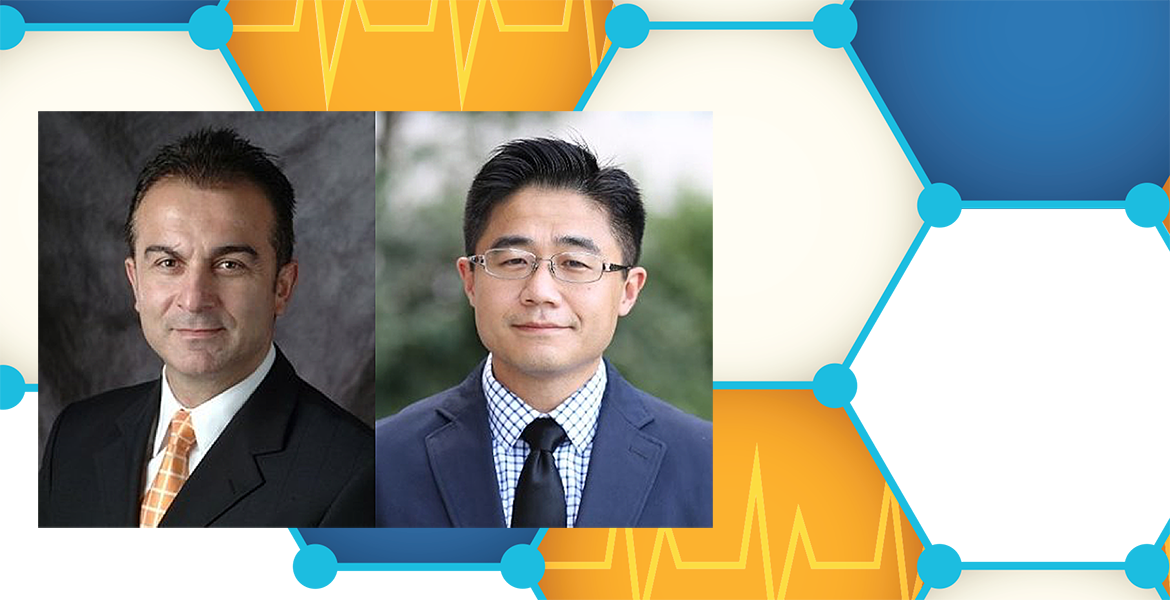
Mentoring the next generation of biomedical data science researchers
Wednesday, February 27, 2019
Oklahoma State University data science researcher Dr. Dursun Delen has been selected to mentor a biomedical scientist and physician in using artificial intelligence to model data to improve the efficiency of hospital emergency rooms. Delen, Regents Professor in Management Science and Information Systems in the Spears School of Business, was chosen from a nationwide field of data research experts to participate in the Data Science Rotation for Advancing Discovery Trip (RoAD-Trip), a National Institutes of Health (NIH) program.
Delen is mentoring Dr. Paul Peng, M.D., Ph.D., a physician and biomedical researcher from the Icahn School of Medicine at Mount Sinai in New York City, for two weeks this spring at OSU-Tulsa. Peng also has degrees from the Massachusetts Institute of Technology, the University of California at Berkeley and Harvard University. The RoAD-Trip program pairs senior data scientists with junior biomedical researchers who will collaborate on using information sciences to address public health care challenges.
Delen, who has published more than 100 peer-reviewed data science papers, said the project is valuable because it is pairing his expertise in machine learning methods with a practicing emergency medicine doctor who happens to have interest in applied artificial intelligence and deep learning.
“Dr. Peng works as a resident physician in the Emergency Department at the Mount Sinai Health System in New York City, one of the nation’s top hospitals,” Delen said. “But he’s also very keen on analytics research and realizes the future of medicine is being driven by data. He’s very interested in computers helping doctors make faster and better diagnostic and treatment decisions.”
The pair will work on data modeling to help understand the underlying causes of patients having to be readmitted, or “bounced back”, for medical treatment following an emergency room visit, which is a growing cause of death in U.S. hospitals. The researchers will access two of the nation’s largest electronic health records databases from both OSU’s Center for Health Systems Innovation and the Icahn School of Medicine at Mount Sinai, and use advanced machine learning and deep learning methods to model disease diagnoses in the ER.
“The goal is to save suffering and save money,” Delen said. “The idea is to improve patients’ treatment the first time you see them in the emergency setting by making faster and more accurate diagnostic and treatment decisions.”
By investigating why a significant percent of all patients who visit the ER end up being bounced back to the hospital, the researchers hope to shed light on predictors of death and health deterioration of those patients.
